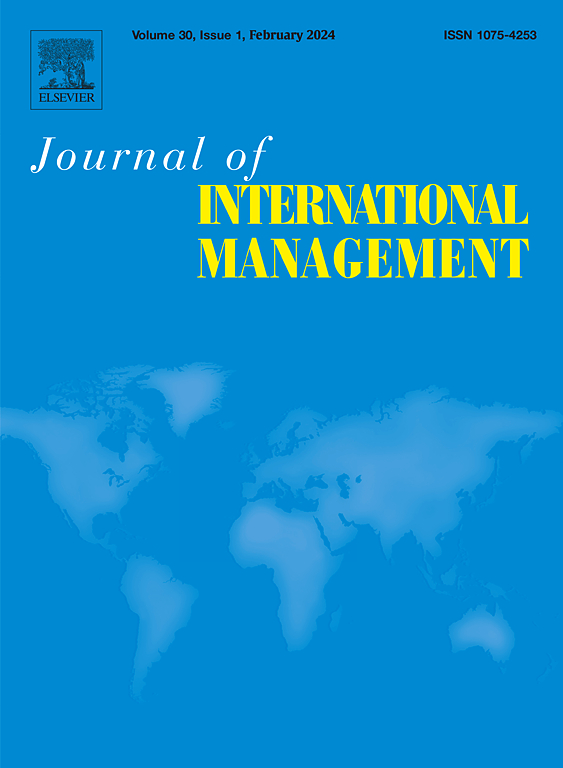Workplace discrimination and overqualification among self-initiated expatriates: The moderating role of organizational legitimacy
IF 4.9
2区 管理学
Q1 MANAGEMENT
引用次数: 0
Abstract
Drawing on relative deprivation theory, this study develops a model to examine whether perceived overqualification and workplace discrimination negatively influence self-initiated expatriates' (SIE) expatriation satisfaction. Additionally, it investigates whether organizational legitimacy and status moderate these relationships. Analyzing a sample of 379 SIEs living and working in the United Arab Emirates (UAE), we find that workplace discrimination significantly reduces SIEs' overall expatriation satisfaction. However, this negative effect diminishes when SIEs perceive their host organization as having high sociopolitical legitimacy. Conversely, the negative impact of workplace discrimination strengthens when SIEs view their host organization's status as high. In contrast, perceived overqualification has no effect on SIEs' expatriation satisfaction, regardless of the host organization's legitimacy or status. This study contributes to the existing literature by highlighting the effects of workplace discrimination and overqualification on SIEs' expatriation experiences. It also elucidates the crucial role of sociopolitical legitimacy and organizational status in shaping SIEs' s responses to negative expatriation experiences.
自我发起的外派人员的工作场所歧视和资历过高:组织合法性的调节作用
利用相对剥夺理论,本研究建立了一个模型,以检验感知到的资历过高和工作场所歧视是否会对自我发起的外派员工(SIE)的外派满意度产生负面影响。此外,它还调查了组织合法性和地位是否会调节这些关系。通过对379名在阿联酋生活和工作的外籍员工样本的分析,我们发现,职场歧视显著降低了外籍员工的总体满意度。然而,当他们认为他们的东道国具有很高的社会政治合法性时,这种负面影响就会减弱。相反,当雇主认为自己所在公司的地位很高时,工作场所歧视的负面影响就会增强。相比之下,无论东道国的合法性或地位如何,认为资格过高对外籍员工的外派满意度没有影响。本研究通过强调工作场所歧视和资历过高对外籍员工的影响,为现有文献做出了贡献。它还阐明了社会政治合法性和组织地位在塑造他们对负面外派经历的反应中的关键作用。
本文章由计算机程序翻译,如有差异,请以英文原文为准。
求助全文
约1分钟内获得全文
求助全文
来源期刊

Journal of International Management
MANAGEMENT-
自引率
9.80%
发文量
67
审稿时长
81 days
期刊介绍:
The Journal of International Management is devoted to advancing an understanding of issues in the management of global enterprises, global management theory, and practice; and providing theoretical and managerial implications useful for the further development of research. It is designed to serve an audience of academic researchers and educators, as well as business professionals, by publishing both theoretical and empirical research relating to international management and strategy issues. JIM publishes theoretical and empirical research addressing international business strategy, comparative and cross-cultural management, risk management, organizational behavior, and human resource management, among others.
 求助内容:
求助内容: 应助结果提醒方式:
应助结果提醒方式:


